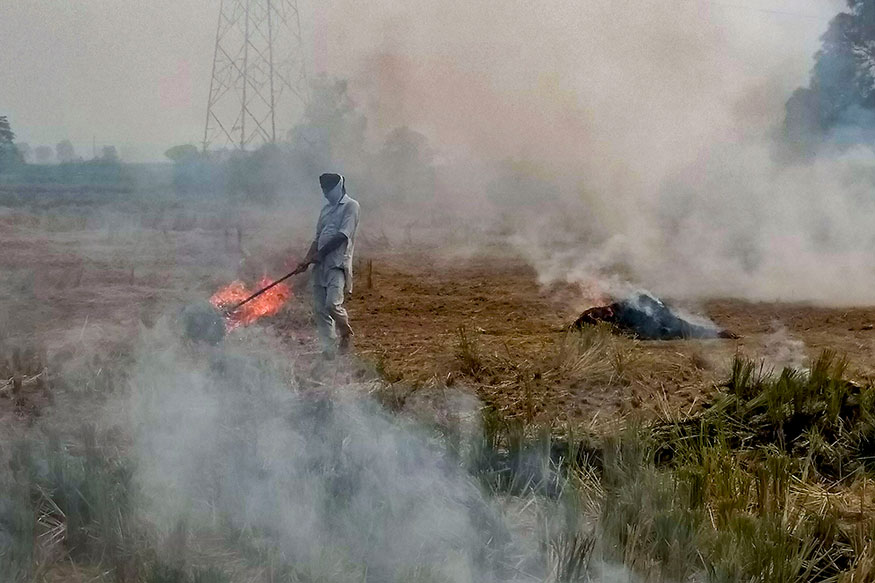NEW DELHI: To curb alarming pollution levels in north India, especially during winter months, CII on Sunday said it has adopted over 100 villages and 100,000 acres of farm area in Punjab and Haryana to enable zero crop residue burning.
The industry body has adopted Ludhiana, Barnala and Patiala districts in Punjab, and Rohtak, Sirsa and Fatehabad in Haryana.
The Confederation of Indian Industry (CII) has created an ecosystem to engage stakeholders, including experts, corporates, state governments, village community and farmer groups, to implement possible solutions to the issue of stubble burning, the chamber said in a statement.
CII is proactively engaging with over 15,000 farmers to provide farm machinery, organise technical trainings and massive awareness drives in the adopted villages of Punjab and Haryana, it said.
Air quality monitors have been installed to monitor village level air pollution data, to measure the impact of reduced stubble burning.
Over 3,000 school students in Punjab, and youth and corporate volunteers are joining CII in this movement to enable zero stubble burning, the chamber said.
The intervention is supporting farmer groups to procure a range of farm machineries, including Happy Seeder, Zero Till, Mulcher, among others, and make these available to farmers on a nominal rent.
The use of these machineries on a shared basis is enabling farmers to adopt in-situ straw management practices, leading to zero stubble burning and sustainable farming, it said.
The intervention is an extension of its pilot project last year in 19 villages and 16,000 acres of farmland in Punjab, engaging over 3,000 farmers.
“The impact of the intervention was encouraging. Post the intervention, 80 per cent farmers adopted no stubble burning approach and a total of 12,000 acres of farmland (75 per cent of the total area under paddy in the adopted villages) became free of stubble burning in 2018, compared to 550 acres (3.5 per cent of farm land) in 2017,” CII said.
It said that many of these farmers adopted alternate technology to stubble burning, for the first time ever.
About 25,000 tonne of rice straw was recycled back into the soil under the project and 115 tonne fine particulate matter (PM2.5) was saved from being released into the air.
CII Director General Chandrajit Banerjee said, “CII’s ‘Cleaner Air, Better Life’ initiative is implementing and piloting optimal solutions to help farmers adopt zero stubble burning. From our pilot of 19 villages in 2018, we have now scaled to 100 villages.”
The initiative is being implemented with the support of numerous stakeholders, including Punjab Agricultural University, Haryana Agriculture University, Hisar, Punjab Pollution Control Board, District Agriculture Offices of Department of Agriculture and Farmer Welfare and Krishi Vigyan Kendras. (agencies)


